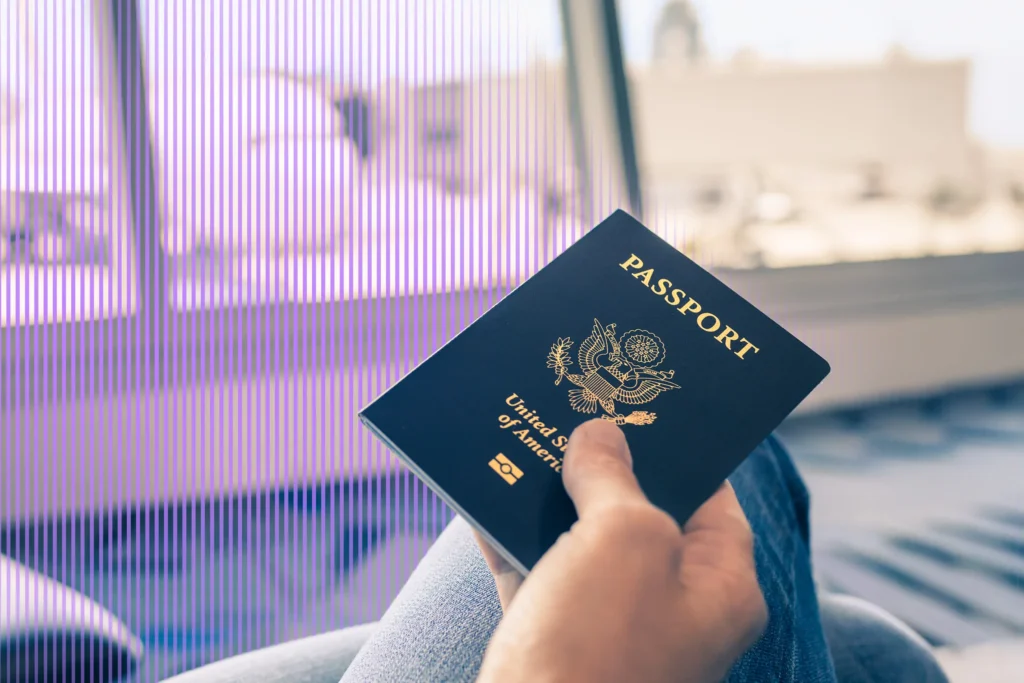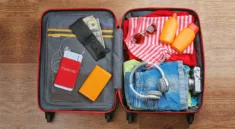
Traveling is one of life’s greatest adventures. Exploring new cultures, tasting exotic cuisines, and experiencing diverse landscapes can be transformative. But amidst all the excitement, losing your passport, visa, or identification documents can turn your dream trip into a nightmare. These essential documents are your keys to entry, safety, and identity in a foreign land. That’s why securing them should be a top priority for every traveler.
This comprehensive guide offers practical strategies and smart habits to help you protect your travel documents wherever you go. From storage ideas and digital backups to emergency planning and safety tools, these tips are designed to ensure that your passport, visas, and IDs remain safe and accessible—so you can travel with confidence and peace of mind.
1. Understand the Importance of Document Security
Before diving into solutions, it’s essential to recognize the value of these documents:
- Passport: Your primary form of international identification. Losing it can lead to delays, extra costs, or even denied boarding.
- Visa: Proof of permission to enter or stay in a country. Losing a visa may void your legal status.
- ID Cards: National ID or driver’s license may be required for domestic travel, hotel check-ins, or emergency identification.
Failure to secure these documents can result in:
- Identity theft or fraud
- Denied entry at borders
- Legal complications
- Interrupted travel plans
A little preparation goes a long way in avoiding these issues.
2. Always Keep Originals and Copies
Never travel with only your original documents. Make multiple photocopies of your important IDs and keep them in different locations.
Recommended copies to carry:
- Passport photo page
- Visas and entry stamps
- Travel insurance
- Driver’s license or national ID
Store hard copies in a different bag from the originals and consider leaving a copy at home with a trusted friend or family member.
3. Use Digital Backups
Technology offers another layer of protection. Scan or photograph your documents and store them securely.
Storage options:
- Cloud storage (Google Drive, Dropbox, iCloud)
- Secure travel apps (TripIt, Travel Vault)
- Password-protected USB drive
Tip: Name files clearly (e.g., “Passport_JohnDoe_2025”) and keep them organized for quick access.
Make sure your phone or laptop is encrypted and protected with strong passwords or biometrics.
4. Choose the Right Travel Wallet or Organizer
A secure travel wallet or document organizer helps keep everything in one place and reduces the chance of loss or theft.
Features to look for:
- RFID-blocking material (prevents unauthorized scanning of chips)
- Zippered or hidden compartments
- Waterproof or water-resistant design
- Slim enough to wear under clothing
Neck wallets, money belts, and passport pouches are popular among seasoned travelers for their security and comfort.
5. Use Hotel Safes Wisely
Most hotels offer in-room safes, which are generally secure for storing your passport and extra cash. However, not all safes are created equal.
Best practices:
- Use safes in reputable accommodations
- Lock your safe with a custom code (not 0000 or 1234)
- Take a photo of the contents before locking
- Leave a note to remind yourself not to forget your items
Alternative: Use portable travel safes with anti-theft features if you’re staying in hostels or budget hotels.
6. Be Strategic About What You Carry Daily
While exploring a city or going on a day trip, don’t carry your original passport unless absolutely necessary.
Instead:
- Carry a copy of your passport (printed or digital)
- Use your driver’s license or secondary ID for age verification or ID checks
- Only bring your visa if needed for checkpoints
This limits your exposure if you’re pickpocketed or misplace your bag.
7. Know the Local Laws and Customs
In some countries, you are legally required to carry your passport at all times. In others, a copy may suffice.
Research in advance:
- Is a digital copy accepted by local police?
- Can hotel staff keep your passport temporarily?
- Are there checkpoints or random ID checks?
Understanding the local expectations can help you balance compliance with safety.
8. Divide and Conquer: Don’t Keep Everything Together
Avoid storing all your critical documents, credit cards, and cash in one place. A single incident (theft, loss, or water damage) could ruin everything.
Strategy:
- Keep your passport in one place, cash and cards in another
- Use hidden pockets in your clothing
- Carry a dummy wallet with expired cards and small cash for distraction
Always have a backup method for identification and payment, such as a digital wallet or emergency contact info.
9. Use Smart Travel Gear
Innovative gear can add extra layers of protection to your travel routine.
Options include:
- Anti-theft backpacks with lockable zippers and slash-proof fabric
- Hidden passport pockets sewn into jackets or scarves
- Waterproof sleeves for beach or adventure travel
- Belt clips or ankle wallets for discrete storage
Invest in quality gear—it’s worth the peace of mind.
10. What to Do If Your Documents Are Lost or Stolen
Preparation is your best defense, but knowing how to respond is just as crucial.
Immediate steps:
- Stay calm and retrace your steps.
- Report the loss to local police—obtain a report.
- Contact your country’s embassy or consulate for passport replacement.
- Notify your bank if ID theft is possible.
- Check if your travel insurance covers lost documents.
Having digital and physical backups makes this process significantly smoother.
11. Know Your Embassy’s Contact Details
Always know how to reach your embassy or consulate in every country you visit.
How to prepare:
- Save embassy addresses and phone numbers in your phone and on paper.
- Use official government websites to confirm details.
- Join STEP (Smart Traveler Enrollment Program) if available in your country—it allows your embassy to assist you faster.
In case of emergencies, such as political unrest or natural disasters, embassies also provide evacuation or legal support.
12. Travel Insurance: Your Silent Guardian
Travel insurance isn’t just for medical emergencies—it often covers document loss.
Look for coverage that includes:
- Reimbursement for lost or stolen passports
- Emergency assistance services
- Lost luggage including documents
- Legal support if ID theft occurs
Always carry your policy number and contact information. Some insurers have 24/7 hotlines to assist with document replacement.
13. Inform Your Bank and Use Travel Alerts
If you lose an ID linked to your financial information (like a driver’s license), your bank may be able to help prevent fraud.
Before traveling:
- Set travel alerts on your cards
- Enable location-based security features
- Use two-factor authentication for your accounts
After any loss, change passwords and monitor your accounts closely for suspicious activity.
14. Special Tips for Digital Nomads and Long-Term Travelers
If you’re abroad for extended periods or traveling between multiple countries:
Advanced strategies:
- Apply for second passports if your country allows it
- Use passport renewal services abroad in advance of expiration
- Store digital copies on encrypted drives or password managers
- Consider digital IDs (e.g., mobile driver’s licenses) if accepted
Long-term travelers should treat passport and visa protection as part of daily digital hygiene.
15. Smart Habits to Prevent Document Loss
Sometimes, it’s not theft—it’s forgetfulness. Adopting simple daily habits can prevent accidental losses.
Try these:
- Do a “document check” every morning before heading out.
- Use packing checklists before leaving hotels or flights.
- Scan hotel drawers and safes before checkout.
- Keep your bag zipped at all times, even when seated.
- Don’t leave documents unattended at cafes, airports, or bathrooms.
These small habits build a layer of mindfulness around your most valuable items.
Conclusion: Travel Smart, Travel Secure
Your passport, visas, and IDs are more than just paper—they’re the lifeline of your travel journey. With smart planning, safe storage, and a few backup systems in place, you can significantly reduce the risk of loss, theft, or misplacement.
Being prepared doesn’t mean being paranoid—it means being free. Free to immerse yourself in your destination, to take spontaneous adventures, and to move with confidence, knowing your essentials are safe.
So before your next trip, take these practical ideas and build a personalized document security plan. It only takes a little time to protect a lifetime of memories.
Travel far, travel smart—and keep your identity safe wherever you roam.




